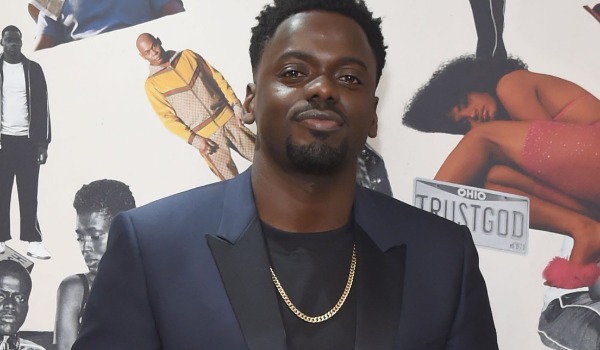Set in the dystopian London of the near future, “The Kitchen” is a brilliant film imbued with a restless, breathless urgency by directors Kibwe Tavares and Daniel Kaluuya. The likelihood of us seeing this Netflix film turn into reality well within our lifetimes is so palpable that there is no looking away anymore.
It’s the story of a solitary hustler named Izi, played by a terrific Kane “Kano” Robinson, and his intent on getting out of the titular community hellhole he was born into. The Kitchen is one of the last remnants of London’s social housing that the government, the police, and the private developers are eager to devour. The more vicious their attempts to suppress —surveillance through drones, armed raids, cutting off essential amenities and supplies — the harder the predominately Black community pushes back.

Izi, who works at a futuristic eco-funeral service, is saving money to rent a flat in one of the posh high-rises on the other side of town. However, all of Izi’s meticulous plans go askew when, one day, he finds a newly orphaned teen boy named Benji (Jedaiah Bannerman), who is under the impression that he could be Izi’s biological son. After some prying, Benji finds that Izi and his mother knew each other in the past. He’s also seemingly made it up in his mind that he and Izi share a special bond.
Unprepared, unavailable, and unequipped to care for the child, Izi balks. Though “The Kitchen” is a scathing critique of corporate greed and social decay, Izi and Benji’s complicated relationship is its throbbing heart. Fourteen-year-old Jedaiah, who makes his acting debut in the film, gives a poignant, earnest performance as a young boy mourning his mother’s passing and trying to negotiate a relationship with an absent father figure who doesn’t want him. All of this with the world crumbling to bits in the backdrop.
One of the most powerful scenes in the film is when Benji, who is promised that he and Izi would escape “The Kitchen” and live in the posh high-rises together, is told to wait at a restaurant for Izi to return. Holding onto his plate filled with food for as long as he can, Izi doesn’t come back for him. And when he finally does, it’s too little too late.
Izi and Benji made me think of Callum (Paul Mescal) and Sophie (Frankie Corio) from the gloriously heart-breaking 2022 festival fan favorite “Aftersun.” In both the films, the pubescent younglings have no idea what their parent is going through, their demons, challenges, and the reality that they are desperately trying to escape but can’t seem to no matter how hard they try. If it’s a woman looking back at an idyllic summer that she spent with her father two decades ago in “Aftersun,” “The Kitchen” has a man and his son wanting a future they may never have.
Daniel Kaluuya, one of the writers and producers of “The Kitchen,” has made a career out of provocative social dramas. His is the cinema of resistance. Whether it be “Get Out” (2017), “Nope” (2022), or “Black Mirror” (2011), he takes the dirt that’s often shoved under the carpet and places it center stage under a glaring spotlight. His films challenge the biases that you never thought you had or made peace with long ago, make you question the given, and urge you to do more.
“The Kitchen” presents a worldview that is edgy, outrageous, and ominous. But despite the abject hopelessness, it is a story about hope, redemption, and the power of community. Showing what could be is often a temptation that most filmmakers wrestle with. But at no point do Kaluuya or Tavares give in. Not when Izi asks Benji if he’d let him be his dad or when, in the last scene, the armed forces beat down their cell door, wanting to break in. Like powerful cinema often does, “The Kitchen” asks uncomfortable questions and provides no answers.


